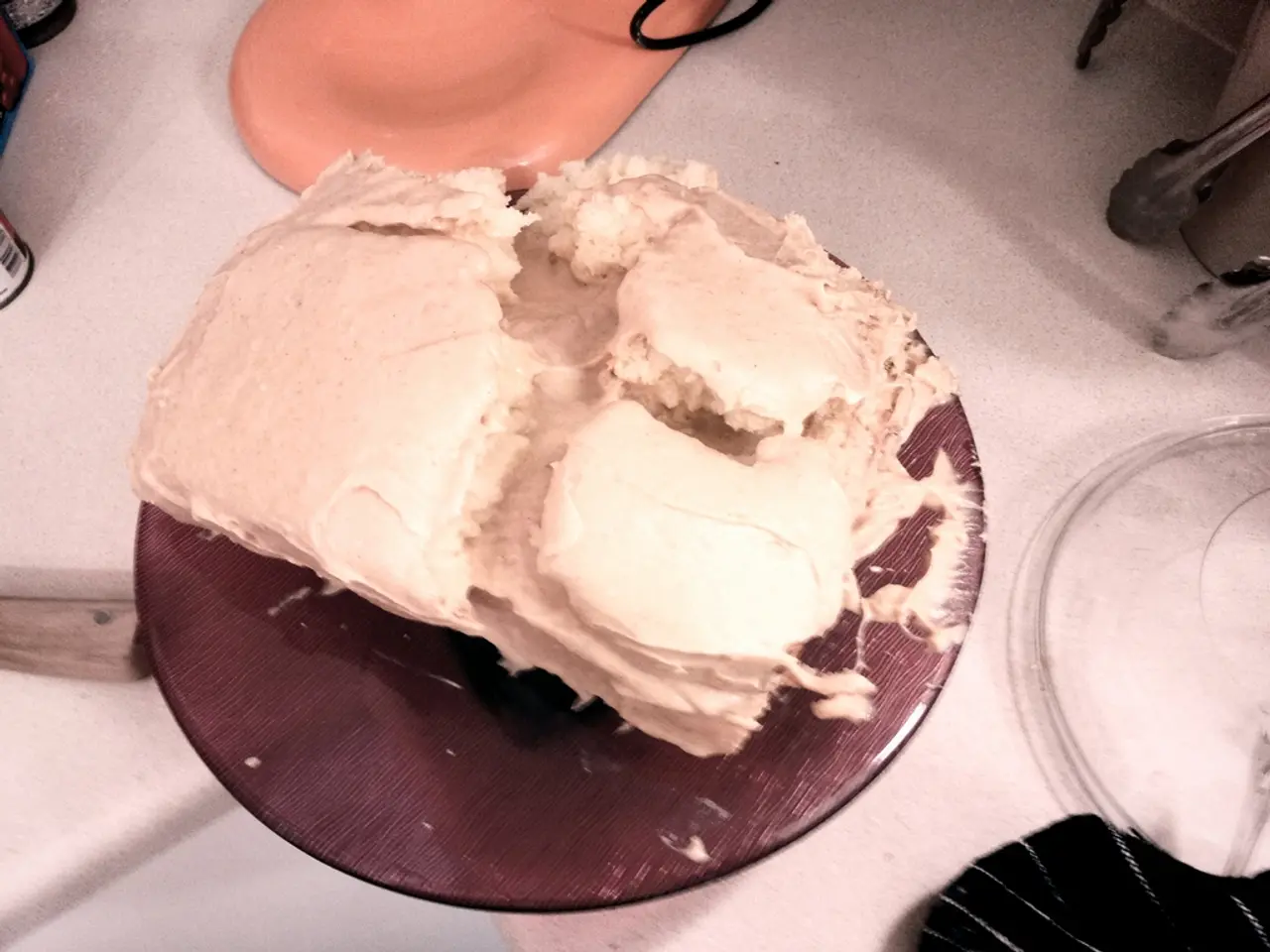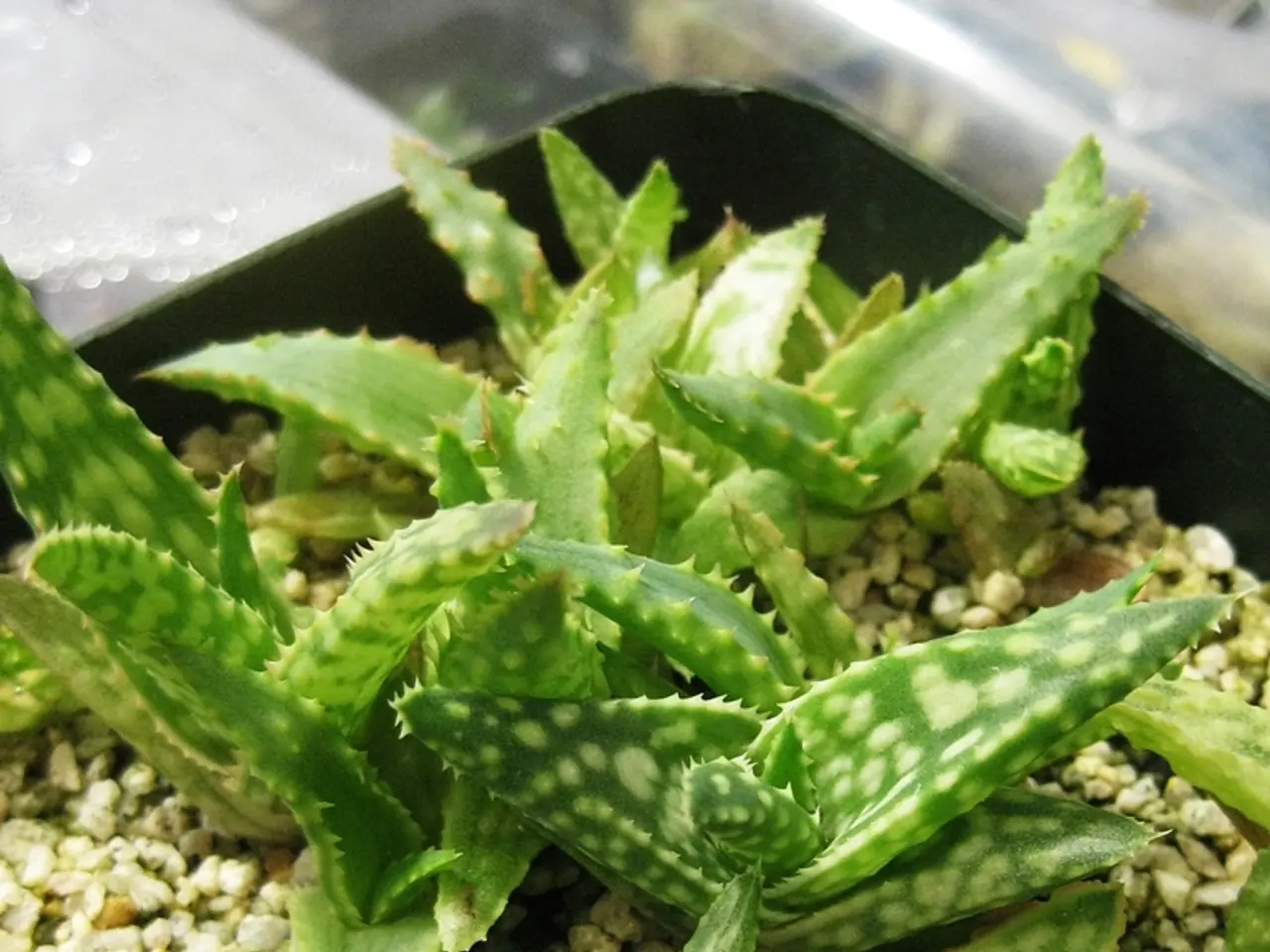Comparing Scalp Psoriasis and Dandruff: Symptoms, Visual Representations, and Underlying Causes
In the realm of scalp conditions, two common ailments often cause concern: scalp psoriasis and dandruff. Despite their similarities in symptoms, these conditions differ significantly in their causes, appearances, and treatment approaches.
**Symptoms Differences**
| Aspect | Scalp Psoriasis | Dandruff (Seborrheic Dermatitis) | |-----------------------|---------------------------------------------------------|------------------------------------------------------| | **Scales/Flakes** | Thick, silvery-white or gray scales; difficult to remove | Fine, white or yellowish flakes; easily shed | | **Appearance** | Red, inflamed patches with dry, thick plaques often extending beyond hairline to forehead, neck, behind ears | Greasy, yellowish flakes mostly confined to oily areas like scalp, eyebrows, sides of nose | | **Skin Condition** | Dry, thick, cracked, possibly painful, may bleed when scratched | Oily, shiny, with redness and mild swelling | | **Itching** | Present with possible burning or soreness | Usually itchy but milder | | **Spread** | Often spreads beyond scalp; involves more extensive areas | Usually limited to scalp and nearby oily facial areas | | **Cause** | Chronic autoimmune condition with accelerated skin cell turnover | Caused by oily scalp and overgrowth of Malassezia fungus |
**Treatment Differences**
- **Scalp Psoriasis** requires targeted treatment due to its autoimmune nature and thicker plaques. Management often involves: - Prescription topical corticosteroids or vitamin D analogues to reduce inflammation and slow skin cell growth. - Medicated shampoos containing coal tar, salicylic acid, or other agents to remove thick scales. - In severe cases, systemic treatments or phototherapy may be necessary.
- **Dandruff** (Seborrheic Dermatitis) treatments focus on controlling oiliness and fungal growth: - Over-the-counter antifungal shampoos (e.g., ketoconazole, selenium sulfide, zinc pyrithione). - Regular shampooing to reduce flakes and oil. - Mild anti-inflammatory agents if redness and itching are significant.
**Summary of Key Differences**
- **Severity and appearance:** Scalp psoriasis presents with thicker, dryer, and more painful plaques, often extending beyond the scalp, while dandruff is milder with greasy, yellowish flakes confined mostly to oily regions. - **Cause:** Psoriasis is autoimmune; dandruff is related to oiliness and fungal overgrowth. - **Treatment:** Psoriasis often requires stronger prescription treatments; dandruff is generally managed with medicated shampoos and regular scalp care.
A professional diagnosis by a dermatologist or hair specialist is essential to distinguish between the two and to guide appropriate treatment. If a person develops red, itchy patches on their scalp, they should seek medical attention as soon as possible. This could be a sign that psoriasis has developed.
For individuals living with psoriasis, a doctor's monitoring is crucial. If treatment is no longer effective or if scalp involvement occurs, the doctor can help determine the best course of treatment going forward.
In the United States, more than 8 million people are living with psoriasis. If symptoms have not improved after a person has tried dandruff shampoos for longer than 1 month, they may wish to seek guidance from a healthcare professional.
[1] American Academy of Dermatology. (2021). Scalp Psoriasis. Retrieved from https://www.aad.org/public/diseases/scalp-hair-disorders/scalp-psoriasis [2] National Psoriasis Foundation. (2021). Dandruff vs. Seborrheic Dermatitis. Retrieved from https://www.psoriasis.org/about-psoriasis/dandruff-vs-seborrheic-dermatitis [5] American Academy of Dermatology. (2021). Seborrheic Dermatitis. Retrieved from https://www.aad.org/public/diseases/scalp-hair-disorders/seborrheic-dermatitis
- In the realm of medical-conditions and chronic-diseases, both scalp psoriasis and eczema are skin-care concerns often associated with the scalp.
- Psoriasis and eczema can appear similar, but they have distinct differences in their appearances, symptoms, and treatments.
- Dandruff, also known as seborrheic dermatitis, can be a confounding factor, sharing some symptoms with scalp psoriasis.
- The science behind scalp psoriasis is a chronic autoimmune condition, whereas dandruff is linked to an overproduction of oil and a fungal overgrowth.
- Health-and-wellness management for scalp psoriasis requires targeted treatments, such as prescription topicals and medicated shampoos, while dandruff is generally managed with over-the-counter antifungal shampoos and haircare practices.
- It is essential for individuals experiencing red, itchy patches on their scalp to seek professional advice from a dermatologist or hair specialist to accurately diagnose and treat the condition, be it scalp psoriasis, dandruff, or another scalp entity.




